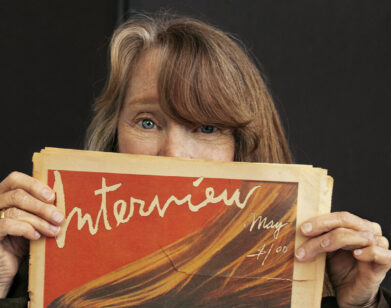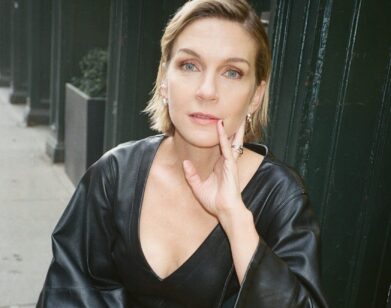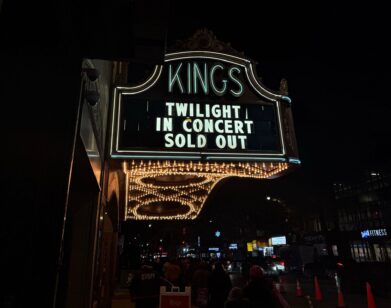David Benioff

When David Benioff published his debut novel, The 25th Hour, in 2001, reviewers took note of his talent, not just for storytelling but for dialogue as well— a fact that made the book a natural for a big-screen adaptation (Spike Lee directed the film version, which was released in 2002). Since then, the Los Angeles-based writer (and husband of actress Amanda Peet) has written screenplays for a number of big–budget productions, such as 2004’s Troy and last year’s The Kite Runner. Benioff’s recently released novel, City of Thieves (Viking), tells the story of two young Russians during the siege of Leningrad.
JASON BATEMAN: David is enjoying a warm jasmine tea, and I have elected to go with the chai latte.
DAVID BENIOFF: The high-pitched voice is Jason Bateman; the deeper, sexier tone is David Benioff. We’re sitting here on Sunset Boulevard at Caffe Primo.
JB: So, do you want to start by telling the readers of Interview who wrote City of Angels?
DB: Never heard of City of Angels. What’s that?
JB: I’m sorry, City of Thieves. I spent a lot of hours reading that thing and I don’t think it’s very funny at all.
DB: You think just because I’m your video-game and fantasy-baseball partner, you . . .
JB: Well, I want to know why you don’t speak, then, like you write?
DB: Well, why aren’t you as funny as you are in Arrested Development?
JB: Because people write for me. But the assumption is that somebody who writes must have that information inside their head and then they-
DB: Let’s just say when I first moved to Los Angeles, people would say, “What do you do?” And I’d say, “I’m a writer,” and they’d say, “Oh, movies or television?” And I’d say, “Well, actually novels.” And then they’d say, “Oh, fiction or nonfiction?” Which, at the time, I thought was kind of funny being a snobby New Yorker who just moved here because novels are fiction. So I’d explain this to them, and after a few months of getting the same question, it stopped being funny. Now I say I write fiction novels. Fiction novels, that’s my game.
JB: And then you’re going to run into somebody highbrow and they’re going to say, “Hey, dumb dumb, that’s redundant.”
DB: As I’ve told you in many an e-mail, you’re the puppet, you know. We write the lines, we pull the strings, and then—
JB: Is that a reference to you putting your fingers inside of me? I don’t think that’s appropriate for this interview.
DB: You weren’t complaining 10 minutes ago.
JB: Alright, so then I will tell you that is quite something, that book you’ve written.
DB: Thank you, sir.
JB: And I don’t read. I mean, I truly don’t.
DB: Maybe if you read other books, you’d realize that it’s not that impressive.
JB: Eh, no. I’ve read enough to know. But it is quite a page-turner, even for a lowbrow like myself. I did manage to not skip over . . . uh . . . I mean, there were a lot of those long words.
DB: There aren’t that many long words.
JB: I was surprised at how many I understood. I did have Dictionary.com at the ready.
DB: Do you remember a word you looked up?
JB: I looked up the reference to Pavlov’s dog.
DB: Now, when you were reading the script for Juno, did you have to look up a lot of those words? Because Diablo [Cody, who wrote Juno] invented her own vocabulary.
JB: I’ll ask the fucking questions.
DB: [laughs] I’m telling you up front, this book is a work of fiction. You’re not going to get me on Oprah crying into my beer because—
JB: You will be crying before we run out of tape today. You’re a nighttime writer, is that right?
DB: That’s true, yes. I usually start around midnight and work until five in the morning.
JB: For me, 90 percent of the work is getting into that place to do the writing. So is the laborious part of it quieting things and shutting down certain motors that are necessary to get through typical society and your day-to-day work. But to actually access that place. . . . Oh, Jesus Christ, it’s Mr. Chris Kattan. [Benioff laughs]
CHRIS KATTAN: Hi, whatever it is, it’s a $34 million opening, a 17-year-old demographic—
JB: We’re doing an interview for Interview magazine. Would you like to make a guest appearance? This is Chris Kattan.
CK: Hi! Do you always do your interview outside of a gym?
DB: There’s a lot of cute guys walking by, so . . .
JB: We’re at a coffee shop that happens to be located next to a gym often frequented by handsome men.
CK: You’re so Juno. Do you know Juno really mean, “no Jews?” Ju-no. Ju-no. No Jews.
DB: Haven’t thought about that before.
JB: To the dyslexics.
CK: Because the Reitmans have a problem. Reit-man. No Jews. I’m just saying.
JB: The government’s going to come get you, you know. Were you just pumping something in there?
CK: I pumped up some juice, some volume.
JB: Or was it just a steam?
CK: This is for Interview magazine?
DB: Yeah.
CK: Oh, that’s a good one.
DB: It’s very prestigious.
CK: But it’s usually like celebrity interviews celebrity, right?
JB: Awesome joke. Can you get out of here?
CK: Alright, I’ll see you later.
JB: I love you.
DB: See you, Chris. [laughs]
JB: Where did we leave off? I was close to tears wherever we were. When you write a screenplay or a book, do you write forwards or backwards? Do you know pretty much what your beginning, middle, and end are going to be?
DB: That’s a great question. Before I got more disciplined, it was to write the scenes I wanted to write that particular night. It was just like, Oh, I’ve always wanted to write this scene.
JB: Even if you’re not there yet—so it could be, like, a stand-alone scene.
DB: Well, knowing that I would get to it at a certain point, but not knowing how the dots would connect. Eventually I realized that the reason everything I was writing was getting rejected by every publisher in America was because they looked like connect the dots.
JB: Kind of episodic.
DB: Yeah, very episodic. It is actually a lot harder to sit down and write from A to Z. But for me at least, it’s the only way I can do it, at this point, with any moderate success. My adviser in college always said, “You want to know where you’re going.”
JB: Do you feel that screenplay writing helped you with dialogue.
DB: I think someone would have to really like my first novel and then look at this one and see. I think, in a weird way, the reason I was drawn to screenwriting and the reason I really love doing it is because I love writing dialogue. So I think dialogue was always my favorite part of writing even way before I knew I was going to be a screenwriter. The 25th Hour came out of the decision, a really very conscious decision, that I needed a story set within a compressed time frame because that would help focus the story.
JB: And it would be a little more linear?
DB: It would be a lot more linear, and it would be more compact because the book before was, you know, 600 pages or whatever, and so I came up with the idea of a story—
JB: Did I say I was going to read that one?
DB: It’s very short.
JB: A short 600?
DB: No, no, no, it’s never been published. You don’t have to worry about that one. The 25th Hour was like 180.
JB: Great. I’ll do that one. So then, my question is: How are you not obsessed with taking your incredible talent and clear, strong desire to create environments to become a director where you can take what you so clearly do so well and actually make it visual?
DB: Well, a couple of things. You’ve been working in this business for 22 years?
JB: Thirty.
DB: Thirty years, right. I started seven years ago, right, so I’m still fairly new to it. And I didn’t grow up wanting to be a director. I grew up wanting to be a writer, so for me, that was always the goal-to be a novelist, not a screenwriter. And I think, again, if I didn’t have the novels, maybe I’d be much more frustrated by not having directed yet.
JB: You know it took me until the third day to find Darling on the cover of City of Thieves.
DB: That’s right, that’s right. [laughs]
JB: How’d you come up with that name?
DB: Darling is kind of an homage to a Chekhov story called “The Darling.”
JB: See there: My lowbrow just hit you right on the face.
DB: No, it’s a story. I used to teach high school in Brooklyn, and that was a story that I taught. Also, there’s a great movie Darling [1965] with Julie Christie. Ever see that?
JB: I didn’t hear a word you said. I was thinking about Ellen Page playing the sniper.
DB: Yes, odd that you mention that because that’s who I would picture, too.
JB: Well, why don’t you just go ahead and send that over there.
DB: Send it to your buddy Ellen. Then I’d be a total hypocrite after I just went through this speech about how it’s not—
JB: Yeah, but it’s on record now that you’d already been thinking about it. So what? No one’s going to begrudge you.
DB: Am I wrong? Wouldn’t she be perfect as Vika?
JB: Who else could do it?
DB: I’m just imagining the literary snobs in New York City reading this interview now being like, “Look at these fucking bozos.”
JB: Literary snobs are not going to be reading this interview.
DB: Oh, that’s true. [laughs]






